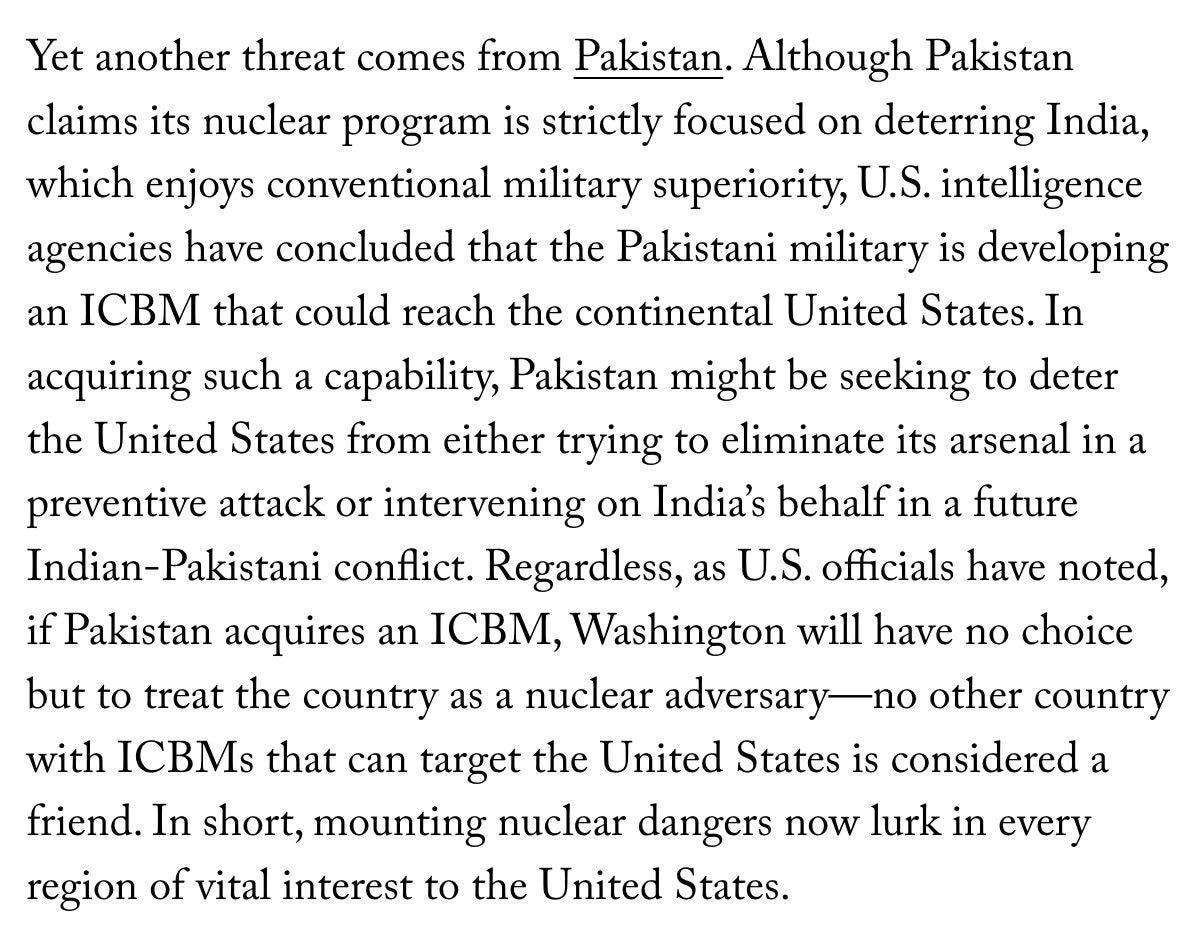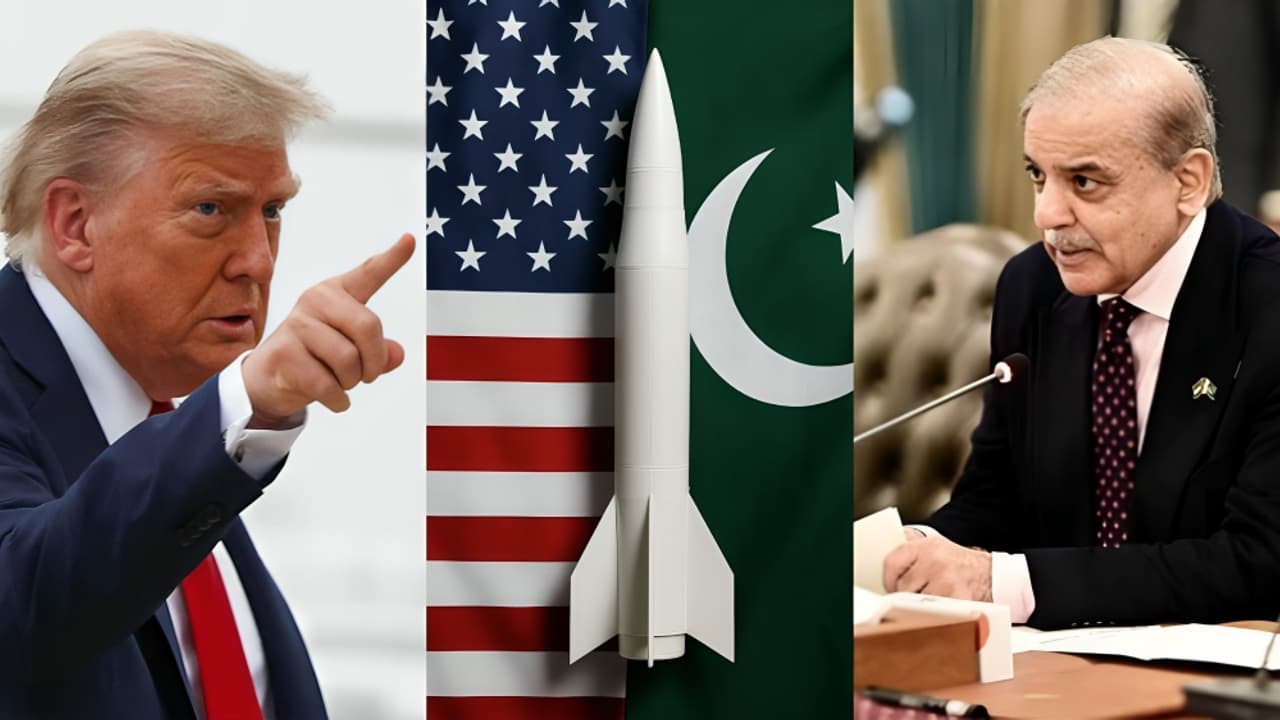A new US report warns that Pakistan may be developing a long-range missile capable of reaching the US. If confirmed, this could mark Pakistan as a nuclear adversary, increasing global concerns over rising nuclear threats.
A recent report in Foreign Affairs, written by nuclear experts Vipin Narang and Pranay Vaddi, has revealed that US intelligence agencies believe Pakistan is secretly working on an intercontinental ballistic missile (ICBM). If successful, such a missile could carry nuclear warheads and reach the continental United States, a range far beyond any missile Pakistan has publicly tested.

This development, if confirmed, would mark a major shift in Pakistan's missile policy, which has so far focused mainly on short-and-medium-range missiles aimed at deterring India.

What is an ICBM and why is it important?
Intercontinental Ballistic Missiles (ICBMs) have a range of over 5,500 kilometres and they are capable of delivering nuclear or conventional warheads. Currently, only a few countries such as US, Russia, China and North Korea have operational ICBMs.
Pakistan does not officially possess ICBMs. Its longest-range missile, Shaheen-III, tested in 2022, has a reach of about 2,700 km, which puts many Indian cities within range but not the US. However, the US believes Pakistan may be working on developing a missile with global reach, possibly with help from China.
Why the US is concerned
If Pakistan successfully develops an ICBM that could target the US, Washington would be forced to treat it as a nuclear adversary. Currently, only Russia, China, and North Korea are seen in that category.
US officials fear that Pakistan may be seeking to prevent the US from acting against its nuclear weapons, either through preemptive strikes or in support of India in a future conflict. The concern is not just about range, but about intent and deterrence.
Pakistan’s nuclear history and current arsenal
Pakistan has around 170 nuclear warheads and has always said its nuclear program is meant to deter India. It is not a signatory to the Nuclear Non-Proliferation Treaty (NPT), which aims to stop the spread of nuclear weapons.
Following Operation Sindoor, where Indian forces destroyed terror camps and key airbases inside Pakistan, Islamabad is believed to be seeking stronger deterrence capabilities. And it can do so possibly by developing weapons that could reach far beyond the region.
US sanctions on Pakistan and Chinese support
The United States has already imposed sanctions on Pakistan’s missile development agencies, including the National Development Complex. These sanctions block American companies from doing business with them and freeze any US-held assets.
Reports have also suggested that China is helping Pakistan acquire materials and technology to upgrade its nuclear missile program. The latest US World Threat Assessment mentioned that Pakistan was importing equipment from China to support its weapons of mass destruction programme.
Growing global concern
The possible development of an ICBM by Pakistan is now being viewed by experts as part of a wider pattern of nuclear escalation. With multiple flashpoints across the globe, including tensions in Ukraine, Taiwan, and the Middle East, the fear is that more countries developing long-range nuclear capabilities could increase the chances of global conflict.
Indian officials, including Defence Minister Rajnath Singh, have called on the International Atomic Energy Agency (IAEA) to closely watch Pakistan’s nuclear facilities and missile programs.
As nuclear dangers grow, the United States and its allies may have to prepare for a world where more states, including Pakistan, can strike targets across continents.


